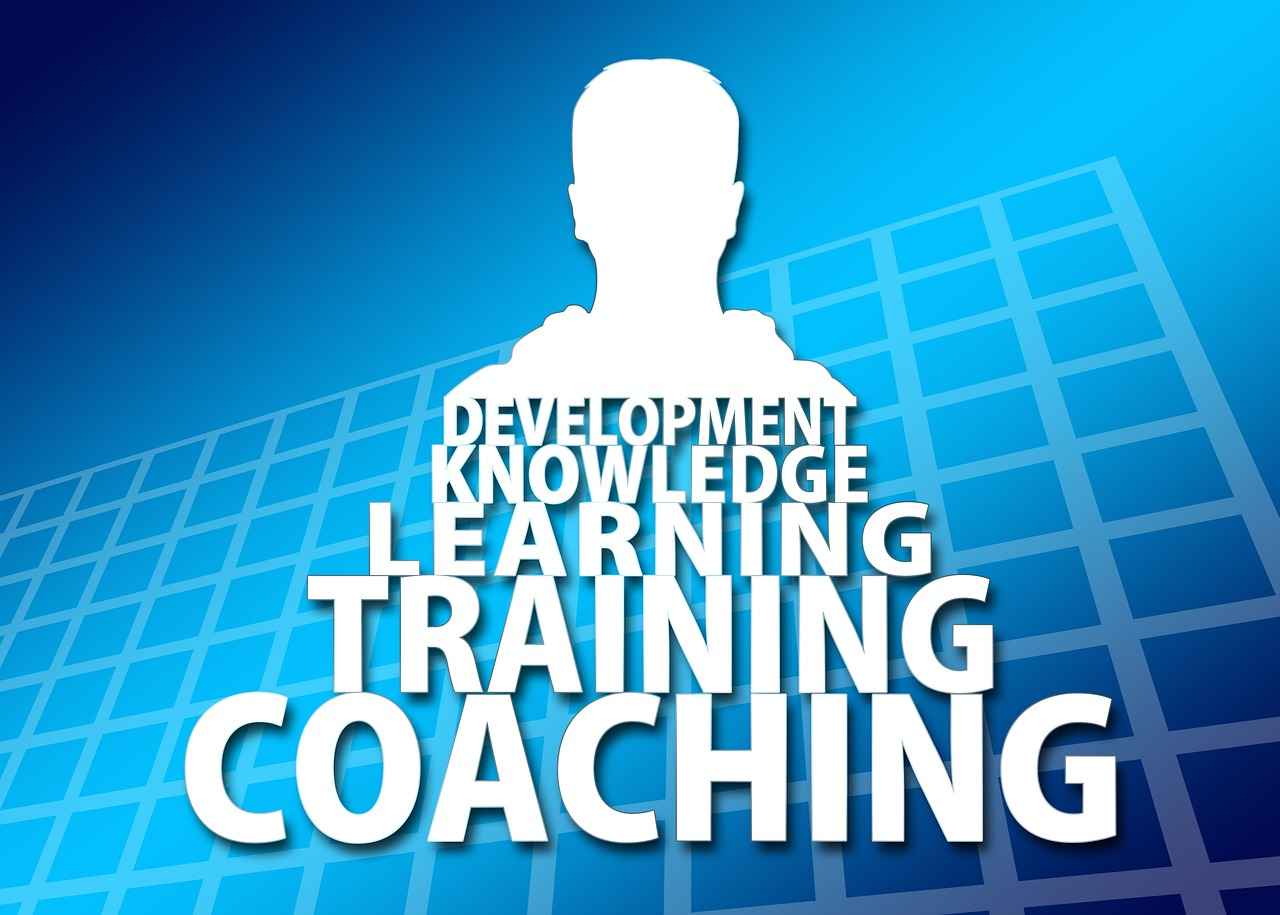This article explores effective strategies for locating qualified lawyers in Wichita, Kansas, focusing on various legal cases and providing practical insights for individuals seeking legal representation.
Finding the right legal representation can be a daunting task, especially when faced with the complexities of the U.S. legal system. In Wichita, Kansas, individuals often encounter various legal issues ranging from personal injury to family law. Understanding how to navigate this landscape is crucial for securing effective legal assistance.
- Understanding Personal Injury Cases
Personal injury law encompasses a wide range of situations, including accidents, workplace injuries, and slip-and-fall incidents. To find a specialized attorney in Wichita, consider seeking referrals from trusted sources, such as friends or family. Additionally, online platforms like Avvo and Martindale-Hubbell provide valuable insights into lawyers’ backgrounds and client reviews. Look for attorneys who have a proven track record in personal injury cases, as their experience can significantly impact your case outcome.
- Medical Malpractice: Finding the Right Attorney
Medical malpractice cases require specialized knowledge of both medical and legal standards. When searching for an attorney in Wichita, prioritize those with experience in medical negligence cases. Check their credentials, including board certifications and memberships in relevant legal associations. Online reviews and testimonials can also provide insight into their ability to handle complex medical cases effectively.
- Breach of Contract: Legal Representation Matters
Breach of contract disputes can arise in various contexts, from business relationships to personal agreements. Selecting a lawyer with a strong background in contract law is essential. Look for attorneys who have successfully handled similar cases and understand the nuances of contract enforcement. Websites like FindLaw can help you locate attorneys specializing in this area.
- Property Disputes: Navigating Real Estate Law
Property disputes can be intricate and emotional. When choosing an attorney in Wichita, consider their experience in real estate law. Seek out professionals who are familiar with local property laws and regulations. It’s beneficial to schedule consultations to discuss your specific case and gauge their understanding of the issues at hand.
- Landlord-Tenant Disputes: Legal Guidance Needed
Landlord-tenant disputes are common and can escalate quickly. Finding an attorney who specializes in this area can provide essential support and representation. Look for lawyers who have a deep understanding of tenant rights and landlord obligations. Resources like the Kansas Bar Association can guide you in finding qualified attorneys.
- Defamation Cases: Importance of a Skilled Lawyer
Defamation cases, whether involving libel or slander, require a nuanced understanding of free speech laws. A knowledgeable attorney can effectively navigate these sensitive issues. When searching for representation, look for lawyers who have successfully handled defamation cases and can demonstrate their expertise through past client testimonials.
- Employment Disputes: Protecting Your Rights
Employment-related legal issues are prevalent in today’s workforce. Knowing how to find an attorney who specializes in employment law can safeguard your rights. Look for lawyers with experience in handling cases related to wrongful termination, discrimination, or wage disputes. Websites like the National Employment Lawyers Association can help you locate qualified attorneys in your area.
- Product Liability: Holding Companies Accountable
Product liability cases can be complex, involving multiple parties. Engaging an experienced attorney can help you build a strong case against negligent manufacturers. When searching for a lawyer, look for those who have a successful history in product liability litigation and can provide references from past clients.
- Wrongful Death: Seeking Justice
Wrongful death claims demand compassionate and skilled legal representation. Understanding how to find the right attorney can ease the burden during a difficult time. Seek out lawyers who specialize in wrongful death cases and have a track record of obtaining favorable settlements for their clients.
- Class Action Lawsuits: Collective Legal Action
Class action lawsuits can provide a powerful avenue for individuals facing similar grievances. Finding an attorney with experience in such cases is essential for effective representation. Look for lawyers who have previously handled class action suits and can demonstrate their success in achieving justice for their clients.
- Criminal Defense: Navigating Serious Charges
Criminal charges, including theft and drug offenses, require specialized legal expertise. Knowing how to choose a criminal defense attorney can significantly impact your case outcome. Prioritize attorneys who are well-versed in criminal law and have a history of securing favorable results for their clients.
- Family Law Matters: Divorce and Custody Issues
Family law encompasses sensitive issues like divorce and child custody. Selecting an attorney with a strong background in family law is crucial for a favorable resolution. Look for lawyers who are empathetic and have a proven track record in handling similar cases in Wichita.
- Bankruptcy: Finding Financial Relief
Bankruptcy cases can be daunting. Understanding the process of selecting a qualified bankruptcy attorney can help you achieve financial relief and a fresh start. Seek out attorneys who specialize in bankruptcy law and have a comprehensive understanding of both Chapter 7 and Chapter 13 filings.

Understanding Personal Injury Cases
Personal injury law is a vital area of legal practice that addresses the rights of individuals who have suffered harm due to the negligence or wrongdoing of others. It encompasses a broad spectrum of situations, including but not limited to accidents, medical malpractice, and product liability. Understanding the nuances of personal injury cases is essential for anyone seeking compensation for their injuries.
When it comes to navigating the complexities of personal injury law, the importance of finding a specialized attorney cannot be overstated. A qualified personal injury lawyer not only understands the legal framework but also possesses the skills necessary to advocate effectively on behalf of their clients. Here are some critical factors to consider when searching for the right attorney:
- Experience: Look for attorneys who have a proven track record in handling personal injury cases similar to yours. Their experience can make a significant difference in the outcome of your case.
- Reputation: Research online reviews and testimonials. A lawyer with a strong reputation in the community is likely to provide reliable and effective representation.
- Specialization: Personal injury law is diverse. Ensure that the attorney specializes in the specific type of case you have, whether it be medical malpractice, auto accidents, or workplace injuries.
- Communication: An effective attorney should communicate clearly and be responsive to your inquiries. This ensures that you remain informed throughout the legal process.
- Fee Structure: Many personal injury attorneys work on a contingency fee basis, meaning they only get paid if you win your case. Understanding their fee structure upfront is crucial.
In addition to these factors, it is advisable to schedule consultations with multiple attorneys. This allows you to gauge their approach and determine who you feel most comfortable with. During these consultations, ask specific questions about their experience with cases like yours, their strategy for handling your case, and their thoughts on the potential outcomes.
Moreover, networking can be a powerful tool in your search for legal representation. Reach out to friends, family, or colleagues who may have had similar experiences. Personal recommendations can often lead you to trustworthy attorneys who have demonstrated their competence and reliability.
Finally, be wary of red flags. If an attorney makes unrealistic promises or guarantees about the outcome of your case, it may be a sign that they are not being truthful. Trust your instincts and choose an attorney who is honest about the challenges and potential outcomes of your case.
In summary, understanding personal injury cases and knowing how to find the right attorney can significantly impact your chances of receiving the compensation you deserve. By focusing on experience, reputation, specialization, communication, and fee structures, you can make an informed decision when selecting legal representation.

Medical Malpractice: Finding the Right Attorney
When it comes to navigating the intricate world of medical malpractice, having the right attorney by your side is not just beneficial; it is essential. Medical malpractice cases involve complex legal and medical issues that require a specialized understanding of both fields. This article aims to provide you with valuable insights on how to find the most qualified attorney for your medical malpractice case.
What is Medical Malpractice?
Medical malpractice occurs when a healthcare professional fails to provide the standard of care expected in their field, resulting in harm to a patient. Common examples include misdiagnosis, surgical errors, and improper treatment. Given the complexity of these cases, it is crucial to find an attorney who specializes in medical malpractice law.
Why Specialized Knowledge Matters
Medical malpractice law is not only about proving negligence; it also involves understanding medical practices and standards. An attorney with experience in this area will know how to effectively communicate with medical experts and understand the nuances of medical records. This specialized knowledge can significantly impact the outcome of your case.
How to Identify the Right Attorney
- Look for Experience: Seek out attorneys who have a proven track record in handling medical malpractice cases. Inquire about their past case outcomes and how many similar cases they have worked on.
- Check Credentials: Verify their educational background, licenses, and any board certifications in medical malpractice or personal injury law. Membership in professional organizations, such as the American Association for Justice, can also be a good sign.
- Read Reviews and Testimonials: Online reviews can provide insight into an attorney’s reputation. Look for testimonials from past clients regarding their experiences and the attorney’s effectiveness.
- Consultation: Many attorneys offer free initial consultations. Use this opportunity to discuss your case and gauge their understanding and approach. Pay attention to how they communicate and whether they listen to your concerns.
- Ask About Resources: Medical malpractice cases often require extensive resources for expert testimony and investigation. Ensure the attorney has the necessary resources and a network of medical professionals to support your case.
Red Flags to Avoid
- Lack of Specialization: Avoid attorneys who do not specialize in medical malpractice, as they may not have the necessary expertise.
- High Pressure Tactics: Be wary of attorneys who pressure you into signing contracts or making quick decisions. A reputable attorney will provide you with the information you need to make an informed choice.
- Unclear Fee Structures: Ensure that the attorney is transparent about their fee structure. Medical malpractice cases often operate on a contingency fee basis, meaning they only get paid if you win your case.
Conclusion
Finding the right attorney for your medical malpractice case is a vital step in seeking justice. By focusing on specialized experience, checking credentials, and being aware of red flags, you can navigate this challenging legal landscape more effectively. Remember, a knowledgeable and skilled attorney can make all the difference in your case outcome.

Breach of Contract: Legal Representation Matters
Breach of contract disputes can arise in various contexts, affecting individuals and businesses alike. Whether it’s a failure to deliver goods, incomplete services, or non-payment, these disputes can lead to significant financial losses and strained relationships. Engaging a lawyer who specializes in contract law is essential for navigating these complexities and achieving a favorable resolution.
When searching for a qualified attorney in breach of contract cases, consider the following factors:
- Experience in Contract Law: Look for a lawyer with a proven track record in handling breach of contract cases. Their experience will provide insights into the nuances of contract interpretation and enforcement.
- Specialization: Choose an attorney who specializes in contract law rather than a general practitioner. Specialized lawyers are more familiar with relevant statutes and case law, which can significantly impact the outcome of your case.
- Success Rate: Inquire about the attorney’s success rate in similar cases. A lawyer with a high success rate may have effective strategies and negotiation skills that can benefit your case.
- Communication Skills: Effective communication is key in legal matters. Ensure the attorney can explain complex legal concepts in a way that you can understand. This will help you make informed decisions throughout the process.
- Client Reviews and Testimonials: Research client reviews and testimonials to gauge the attorney’s reputation. Positive feedback from previous clients can provide valuable insights into their professionalism and effectiveness.
- Fee Structure: Understand the attorney’s fee structure upfront. Some lawyers charge hourly rates, while others may work on a contingency basis. Make sure you are comfortable with the payment arrangement before proceeding.
Additionally, it is wise to be aware of potential red flags when hiring a lawyer for your breach of contract case:
- Lack of Transparency: If an attorney is not forthcoming about their fees, experience, or case strategy, it may indicate a lack of professionalism.
- Pressure Tactics: Be cautious of lawyers who pressure you into making quick decisions or signing contracts without fully understanding the implications.
- Inconsistent Communication: If an attorney is difficult to reach or slow to respond during the initial consultation, this may be indicative of how they will handle your case.
In large metropolitan areas such as New York City, Los Angeles, and Chicago, the competition among lawyers can be fierce. Utilize online platforms like Avvo, FindLaw, and Justia to research and compare attorneys. These platforms provide valuable information, including ratings, reviews, and areas of expertise, helping you make a more informed choice.
In summary, the importance of selecting the right legal representation in breach of contract disputes cannot be overstated. By focusing on specialized experience, communication skills, and client feedback, you can enhance your chances of a successful resolution. Remember to remain vigilant for red flags and utilize reputable online resources to make a well-informed decision.

Property Disputes: Navigating Real Estate Law
Property disputes are often complex and emotionally charged. When individuals find themselves embroiled in disagreements over real estate, whether it be boundary disputes, landlord-tenant conflicts, or issues related to property ownership, having the right legal representation is crucial. Understanding how to select a capable attorney can make a significant difference in protecting your real estate interests.
When looking for an attorney specializing in property disputes, consider the following steps:
- Research Local Attorneys: Start by searching for attorneys in your area who specialize in real estate law. Websites like Avvo and FindLaw can provide listings and reviews of qualified attorneys.
- Check Credentials: Look for attorneys with a strong background in real estate law, including relevant certifications and memberships in legal associations, such as the American Bar Association’s Real Property, Trust and Estate Law Section.
- Read Reviews: Client testimonials can provide insight into an attorney’s ability to handle property disputes. Pay attention to feedback regarding their negotiation skills and courtroom experience.
- Schedule Consultations: Meeting with potential attorneys can help you gauge their expertise and approach. Prepare a list of questions regarding their experience with similar cases and their strategies for resolution.
- Evaluate Communication: Effective communication is vital in legal matters. Choose an attorney who listens to your concerns and explains legal concepts in a way that you can understand.
It’s also essential to be aware of red flags when selecting a lawyer:
- Lack of Transparency: An attorney who is not forthcoming about fees, processes, or potential outcomes may not have your best interests at heart.
- High Turnover Rates: Frequent changes in staff or attorneys within a firm can indicate instability, which may affect your case.
- Negative Reviews: While one or two negative reviews may not be a dealbreaker, a pattern of complaints regarding communication or professionalism is concerning.
In metropolitan areas like New York City and Los Angeles, the competition among lawyers can be fierce. To narrow down your choices:
- Utilize Local Bar Associations: Many cities have bar associations that offer referral services, helping you find a qualified attorney in your area.
- Network for Recommendations: Ask friends, family, or colleagues if they have any recommendations based on their experiences.
- Attend Real Estate Seminars: Engaging in local real estate seminars or workshops can provide networking opportunities and introduce you to professionals in the field.
When dealing with property disputes, it’s important to act swiftly. Delays can exacerbate issues or lead to additional complications. A knowledgeable attorney can guide you through the intricacies of real estate law, helping you understand your rights and options. They can assist in negotiating settlements, representing you in court, or advising on the best course of action for your specific situation.
Ultimately, the right attorney will not only have the expertise you need but will also be a trusted ally in navigating the often challenging landscape of property disputes. By following the outlined steps and being vigilant about your choice, you can ensure that your real estate interests are well protected.

Landlord-Tenant Disputes: Legal Guidance Needed
Landlord-tenant disputes are prevalent in today’s rental market, affecting both landlords and tenants. These conflicts can arise from various issues such as late payments, property maintenance, or lease violations. When these disputes escalate, they can lead to legal action, making it essential to have a qualified attorney by your side.
Finding an attorney who specializes in landlord-tenant law can provide critical support and representation. Here are some strategies to consider when searching for the right legal professional:
- Research Local Attorneys: Start by searching online for lawyers who specialize in landlord-tenant disputes in your area. Websites like Avvo and FindLaw offer directories of attorneys along with their ratings and reviews.
- Check Credentials: Look for attorneys with specific experience in landlord-tenant law. Credentials such as membership in local bar associations or specialized legal organizations can indicate expertise in this field.
- Read Client Reviews: Client testimonials can provide insight into an attorney’s effectiveness and communication style. Look for reviews that mention successful outcomes in landlord-tenant cases.
- Consultation Meetings: Many attorneys offer free initial consultations. Use this opportunity to discuss your case, gauge their understanding of landlord-tenant issues, and assess whether you feel comfortable working with them.
- Ask About Fees: Understanding the attorney’s fee structure is crucial. Some may charge hourly rates, while others might work on a contingency basis. Ensure you are clear on the costs involved before proceeding.
It’s also important to recognize red flags when selecting an attorney. Be cautious of lawyers who:
- Make unrealistic promises about the outcome of your case.
- Have poor communication skills or are unresponsive to your inquiries.
- Do not provide clear information about their fees and billing practices.
In addition, familiarize yourself with your rights as a tenant or landlord. Understanding local laws and regulations can empower you during the legal process. For instance, in many states, tenants have the right to a habitable living environment, while landlords must adhere to specific eviction procedures.
Ultimately, having a knowledgeable attorney can make a significant difference in resolving landlord-tenant disputes effectively. They can help negotiate settlements, represent you in court, and ensure that your rights are protected throughout the process. By taking the time to find the right legal representation, you can navigate these disputes with greater confidence and peace of mind.

Defamation Cases: Importance of a Skilled Lawyer
Defamation cases, encompassing both libel (written defamation) and slander (spoken defamation), are complex legal matters that require a thorough understanding of free speech laws and the nuances of personal reputation. In an age where information spreads rapidly through social media and online platforms, the potential for defamation claims has increased significantly. Consequently, individuals facing defamation allegations or those seeking to file a claim must engage a skilled attorney who specializes in this area of law.
When searching for a qualified defamation lawyer, consider the following aspects:
- Experience in Defamation Law: Look for attorneys who have a proven track record in handling defamation cases. Their experience will equip them to navigate the complexities of such claims effectively.
- Understanding of Free Speech Issues: A knowledgeable lawyer should be well-versed in the First Amendment and how it applies to defamation. This understanding is crucial in determining the validity of a claim.
- Reputation and Reviews: Investigate the attorney’s reputation through online reviews and testimonials. A lawyer with positive feedback from previous clients is often a good indicator of their capabilities.
- Consultation Availability: Many attorneys offer free initial consultations. Use this opportunity to gauge their understanding of your case and their approach to handling it.
Additionally, it is essential to be aware of potential red flags when hiring a lawyer. Avoid attorneys who make unrealistic promises or guarantee outcomes, as legal cases can be unpredictable. Instead, focus on those who provide a realistic assessment of your situation and outline the possible strategies they can employ.
In defamation cases, timing is critical. There are statutes of limitations that dictate how long you have to file a claim after the defamatory statement has been made. Therefore, seeking legal advice promptly can be crucial for preserving your rights.
In summary, defamation cases require a nuanced understanding of both legal principles and the broader implications of free speech. Engaging a skilled lawyer can significantly impact the outcome of your case, whether you are the plaintiff or the defendant. By focusing on experience, reputation, and realistic expectations, individuals can find a competent attorney who will advocate effectively on their behalf.

Employment Disputes: Protecting Your Rights
Employment disputes are increasingly common in today’s workforce, affecting employees and employers alike. These disputes can arise from various issues, including wrongful termination, wage disputes, workplace discrimination, and harassment. Understanding how to find a qualified attorney who specializes in employment law is crucial for safeguarding your rights and ensuring fair treatment in the workplace.
When searching for an attorney, consider the following strategies:
- Research Specialization: Look for lawyers who specifically focus on employment law. This area of law encompasses a variety of issues, and a specialized attorney will have the expertise necessary to navigate complex regulations and legal precedents.
- Check Credentials: Verify the attorney’s qualifications, including their education, years of experience, and any certifications related to employment law. Membership in professional organizations, such as the National Employment Lawyers Association (NELA), can also indicate a commitment to this field.
- Read Reviews and Testimonials: Online reviews can provide insights into an attorney’s reputation and effectiveness. Websites like Avvo and Martindale-Hubbell offer ratings and reviews from former clients that can help you gauge their performance.
- Consultation Meetings: Schedule consultations with potential attorneys. Many offer free initial consultations, allowing you to discuss your case and assess their approach. Pay attention to how they communicate and whether they seem genuinely interested in your situation.
- Ask About Fees: Understand the attorney’s fee structure before committing. Some attorneys work on a contingency basis, meaning they only get paid if you win your case, while others charge hourly rates or flat fees. Make sure you are comfortable with the financial arrangement.
- Assess Communication Style: Effective communication is key to a successful attorney-client relationship. Choose someone who explains legal concepts clearly and is responsive to your questions and concerns.
In metropolitan areas like New York City, Los Angeles, and Chicago, the competition among attorneys can be intense. Utilize online legal directories and local bar association referrals to find reputable attorneys in your area. Additionally, consider seeking recommendations from friends, family, or colleagues who have had positive experiences with employment lawyers.
Be aware of red flags when selecting an attorney. Avoid those who make unrealistic promises or guarantee outcomes, as legal cases are often unpredictable. Additionally, be cautious of attorneys who pressure you into signing agreements without thoroughly discussing the terms. A trustworthy attorney will prioritize your interests and provide transparent guidance throughout the process.
In conclusion, finding the right attorney for employment disputes requires careful consideration and research. By focusing on specialization, credentials, and communication style, you can enhance your chances of securing effective legal representation. Remember to trust your instincts and choose someone who makes you feel comfortable and confident in their ability to protect your rights.

Product Liability: Holding Companies Accountable
Product liability cases are a critical aspect of consumer protection law, addressing the responsibility of manufacturers and sellers when their products cause harm. These cases can be complex, often involving multiple parties, including manufacturers, distributors, and retailers. Understanding the nuances of product liability is essential for anyone who has been affected by a defective product.
When pursuing a product liability claim, it is crucial to engage an experienced attorney who specializes in this area of law. A knowledgeable lawyer can help you navigate the intricacies of your case, ensuring that you build a strong argument against negligent manufacturers. Here are some important aspects to consider when searching for legal representation:
- Experience and Specialization: Look for attorneys who have a proven track record in product liability cases. Their experience will provide invaluable insights into the legal landscape and potential challenges you may face.
- Reputation: Research the attorney’s reputation through online reviews, testimonials, and professional associations. A well-respected lawyer is more likely to have the resources and connections necessary to handle your case effectively.
- Initial Consultation: Most attorneys offer a free initial consultation. Use this opportunity to ask questions about their experience, approach to cases, and success rates. Pay attention to how they communicate and whether they take the time to understand your situation.
- Fee Structure: Understand the attorney’s fee structure upfront. Many product liability attorneys work on a contingency basis, meaning they only get paid if you win your case. Ensure you are clear on any potential costs involved.
In addition to selecting the right attorney, it is essential to gather evidence to support your claim. This may include:
- Product Documentation: Keep the original packaging, manuals, and receipts, as these can be crucial in establishing the product’s defectiveness.
- Medical Records: If you sustained injuries, obtain medical records and documentation of your treatment. This evidence can help demonstrate the extent of your damages.
- Witness Statements: If there were witnesses to the incident, gather their contact information and statements. Their accounts can bolster your case.
It is also important to be aware of the various types of product liability claims, which typically fall into three categories:
- Design Defects: These claims arise when a product is inherently dangerous due to its design, even if it is manufactured correctly.
- Manufacturing Defects: These occur when a product is flawed during the manufacturing process, leading to a dangerous product that differs from the intended design.
- Marketing Defects: These claims involve inadequate warnings or instructions that fail to inform consumers about potential risks associated with the product.
As you navigate your product liability case, remember that the burden of proof lies with you, the plaintiff. This means you must demonstrate that the product was defective, that it caused your injury, and that you suffered damages as a result. A competent attorney will assist you in gathering and presenting this evidence effectively.
In metropolitan areas like New York City, Los Angeles, and Chicago, the legal market can be highly competitive. Utilize online platforms such as Avvo, FindLaw, or Martindale-Hubbell to locate qualified attorneys in your area. These platforms often provide ratings, reviews, and detailed profiles that can help you make an informed decision.
Finally, be cautious of red flags when hiring a lawyer. Avoid attorneys who make unrealistic promises, pressure you into signing contracts quickly, or lack transparency regarding their fees and processes. Trust your instincts; if something feels off, it’s essential to continue your search for the right legal representation.
By taking the time to find a qualified attorney and understanding the complexities of product liability law, you can hold companies accountable for their negligence and seek the justice you deserve.

Wrongful Death: Seeking Justice
Wrongful death claims are among the most challenging and emotionally taxing legal cases, as they arise from the tragic loss of a loved one due to another party’s negligence or wrongful actions. The process of seeking justice in these cases demands not only compassionate and skilled legal representation but also a deep understanding of the relevant laws and procedures. For those navigating this difficult time, knowing how to find the right attorney can significantly ease the burden and lead to a more favorable outcome.
When searching for a lawyer to handle a wrongful death claim, consider the following key factors:
- Specialization: Look for attorneys who specialize in wrongful death cases. Their experience in this niche area will ensure they are familiar with the intricacies of the law and the nuances of similar cases.
- Track Record: Review the attorney’s history of handling wrongful death claims. An attorney with a proven track record of securing favorable settlements or verdicts can provide confidence in their ability to advocate for your rights.
- Client Testimonials: Seek out reviews and testimonials from previous clients. These insights can reveal how the attorney interacts with clients, their level of professionalism, and their commitment to achieving justice.
- Initial Consultation: Many attorneys offer free consultations. Use this opportunity to gauge their expertise and approach to your case. Ask pertinent questions about their experience, strategies, and what you can expect throughout the legal process.
In metropolitan areas like New York City or Los Angeles, the competition among lawyers can be fierce. Therefore, it’s essential to conduct thorough research. Utilize online platforms such as Avvo or FindLaw to compare attorneys’ ratings, areas of expertise, and client feedback. Additionally, consider reaching out to local bar associations, which often provide referral services to qualified attorneys.
When evaluating potential attorneys, be vigilant for red flags that may indicate a lack of professionalism or integrity. Avoid attorneys who guarantee specific outcomes, as no lawyer can predict the outcome of a case with certainty. Furthermore, be cautious of those who pressure you into making quick decisions without fully explaining your options.
Understanding the financial aspects of hiring a wrongful death attorney is also crucial. Most attorneys operate on a contingency fee basis, meaning they only get paid if you win your case. This arrangement can alleviate financial pressure during a challenging time, but ensure you clarify the percentage they will take and any additional costs you may be responsible for.
Ultimately, the journey through a wrongful death claim is not just about seeking monetary compensation; it is also about holding the responsible parties accountable and ensuring that justice is served. By following these guidelines and conducting thorough research, you can find an attorney who will advocate fiercely on your behalf, providing the support and expertise needed during this difficult time.

Class Action Lawsuits: Collective Legal Action
Class action lawsuits serve as a powerful mechanism for individuals who share similar grievances against a common defendant, often a corporation or large entity. These legal actions allow a group of people to unite their claims into a single lawsuit, which can significantly enhance their chances of obtaining a favorable outcome. The collective nature of these lawsuits not only helps in sharing the costs of litigation but also brings attention to issues that may otherwise be overlooked when pursued individually.
When considering a class action lawsuit, it is crucial to engage an attorney who possesses specialized experience in this area of law. Finding the right legal representation can make a significant difference in the success of your case. Here are some key considerations and steps to take when searching for an attorney:
- Experience in Class Actions: Look for attorneys who have a proven track record in handling class action lawsuits. Their familiarity with the nuances of such cases, including the complexities of certification and settlement negotiations, is invaluable.
- Reputation and Credentials: Research potential attorneys’ credentials and professional reputation. Websites like Avvo and Martindale-Hubbell provide ratings and reviews that can help you gauge an attorney’s standing in the legal community.
- Initial Consultation: Schedule consultations with multiple attorneys to discuss your case. This is a critical opportunity to assess their understanding of your grievances and their proposed strategies for moving forward.
- Fee Structure: In many class action cases, attorneys work on a contingency fee basis, meaning they only get paid if you win. Ensure that you fully understand the fee structure before proceeding.
- Communication Skills: Effective communication is essential. Choose an attorney who is not only knowledgeable but also able to explain complex legal concepts in a way that you can understand.
Additionally, be cautious of red flags when selecting an attorney. Avoid those who make unrealistic promises about the outcome of your case or those who seem more interested in their fees than in your best interests. A trustworthy attorney will prioritize your needs and work diligently to advocate for your rights.
In major metropolitan areas such as New York City, Los Angeles, and Chicago, the competition among attorneys can be fierce. Utilize online platforms and legal directories to identify potential candidates, but also consider local bar associations that can provide referrals to reputable lawyers specializing in class action lawsuits.
Ultimately, a well-chosen attorney can help navigate the complexities of a class action lawsuit, ensuring that your collective voice is heard and that justice is pursued effectively. By taking the time to research and select the right legal representation, you can enhance your chances of a successful outcome in your class action case.

Criminal Defense: Navigating Serious Charges
When facing criminal charges, such as theft or drug offenses, it is crucial to understand the gravity of the situation and the importance of having a specialized legal expert by your side. The outcome of your case can be significantly influenced by your choice of a criminal defense attorney. This article aims to provide essential insights into navigating the complexities of criminal defense and how to select the best legal representation.
Criminal charges can range from minor offenses to serious felonies, each carrying different consequences. For instance, a theft charge can lead to hefty fines and potential jail time, while drug offenses may result in lengthy prison sentences and a permanent criminal record. Understanding the specifics of your charge is the first step in determining the type of legal representation you need.
Criminal law is a complex field that requires specialized knowledge. A lawyer with experience in criminal defense will be familiar with the nuances of local laws, court procedures, and potential plea deals. Their expertise can make a significant difference in your case outcome. For example, an attorney who specializes in drug offenses may have established relationships with prosecutors and judges, which can be beneficial during negotiations.
Finding the right attorney can be a daunting task, but there are several strategies you can employ:
- Research Credentials: Look for attorneys who are certified in criminal defense and have a good standing with the state bar association.
- Experience Matters: Seek out lawyers with a proven track record in handling cases similar to yours. Ask about their success rates and specific outcomes in past cases.
- Client Reviews: Online reviews and testimonials can provide insight into an attorney’s reputation and level of client satisfaction.
- Initial Consultations: Many lawyers offer free consultations. Use this opportunity to gauge their knowledge and approach to your case.
While searching for a criminal defense attorney, be mindful of potential red flags:
- Lack of Communication: If an attorney is difficult to reach or doesn’t respond promptly, it may indicate a lack of commitment to your case.
- Unrealistic Promises: Beware of lawyers who guarantee specific outcomes. No attorney can predict the exact result of a case.
- High Turnover Rate: If a law firm frequently changes personnel, it may suggest instability and a lack of continuity in handling cases.
In today’s digital age, numerous online platforms can help you find qualified criminal defense attorneys. Websites like Avvo, FindLaw, and Lawyers.com provide directories of lawyers along with ratings and reviews. These platforms allow you to filter your search based on location, specialization, and client feedback, making it easier to find a suitable attorney for your needs.
Local bar associations often have referral services that can connect you with experienced criminal defense attorneys in your area. These associations typically vet their members, ensuring that you receive quality legal representation. Additionally, many cities have legal aid organizations that offer services to individuals who cannot afford a private attorney.
When meeting with potential attorneys, asking the right questions is essential. Consider inquiring about:
- Case Strategy: How would they approach your case? What are the potential defenses?
- Fees and Payment Structures: Understand their billing practices, including retainer fees and hourly rates.
- Trial Experience: Have they taken cases to trial? What is their experience with jury trials?
In conclusion, navigating criminal charges requires not only a thorough understanding of the legal landscape but also the ability to select a qualified attorney who can advocate effectively on your behalf. By following the guidelines outlined above, you can enhance your chances of finding the right criminal defense attorney who will work diligently to protect your rights and achieve the best possible outcome for your case.

Family Law Matters: Divorce and Custody Issues
Family law is a complex and emotionally charged area of legal practice that encompasses a variety of sensitive issues, particularly divorce and child custody. Navigating these matters can be overwhelming, and the stakes are often high, making it essential to choose an attorney with the right expertise. In this section, we will explore how to find the best legal representation for family law matters, ensuring that your rights and interests are protected during these challenging times.
Understanding Family Law
Family law covers a broad spectrum of legal issues including divorce, child custody, child support, spousal support (alimony), adoption, and paternity, among others. Each case is unique and requires a tailored approach. When searching for an attorney, it is vital to consider their specialization in family law, as this will significantly affect the outcome of your case.
Choosing the Right Attorney
When selecting a family law attorney, consider the following steps:
- Research Credentials: Look for attorneys who are licensed and have a strong background in family law. Check their educational history and any certifications they may hold.
- Experience Matters: An attorney with extensive experience in family law will be better equipped to handle your case. Look for someone who has dealt with similar issues, especially in your state or jurisdiction.
- Client Reviews: Online reviews and testimonials can provide insight into an attorney’s reputation and effectiveness. Websites like Avvo and Martindale-Hubbell can be helpful in this regard.
- Consultation: Many attorneys offer free initial consultations. Use this opportunity to gauge their communication style and approach to your case.
- Fees and Costs: Understand the fee structure. Some attorneys charge hourly rates, while others may work on a flat fee basis. Be sure to clarify any additional costs that may arise during the process.
Red Flags to Watch For
While searching for the right attorney, be aware of potential red flags:
- Lack of Communication: If an attorney is difficult to reach or does not respond promptly to your inquiries, this may indicate poor communication skills.
- Unrealistic Promises: Be cautious of attorneys who guarantee specific outcomes. Family law cases can be unpredictable, and no attorney can assure success.
- Negative Reviews: Consistent negative feedback from former clients should raise concerns about an attorney’s capabilities and professionalism.
Special Considerations in Family Law
Family law cases often involve emotional turmoil and high-stakes decisions. It is crucial to find an attorney who not only understands the law but also has a compassionate approach. Look for someone who is willing to listen to your concerns and advocate for your best interests. Additionally, consider mediation as an alternative to litigation, as it can be a less adversarial way to resolve disputes, particularly in custody cases.
Conclusion
In summary, finding the right family law attorney is essential for navigating the complexities of divorce and custody issues. By conducting thorough research, considering the attorney’s experience, and being aware of potential red flags, you can make an informed decision that will help protect your rights and achieve a favorable resolution.

Bankruptcy: Finding Financial Relief
Bankruptcy can feel like an overwhelming challenge, but it is essential to remember that you are not alone. Many individuals face financial difficulties, and understanding how to navigate the bankruptcy process can lead to a path of financial relief and a fresh start. One of the most critical steps in this process is selecting a qualified bankruptcy attorney who can guide you effectively through the legal landscape.
When searching for a bankruptcy attorney, consider the following factors:
- Experience and Specialization: Look for attorneys who specialize in bankruptcy law. Their in-depth knowledge of the bankruptcy code and experience with similar cases can significantly influence the outcome of your case.
- Reputation: Research the attorney’s reputation within the community. Online reviews, testimonials, and referrals from friends or family can provide valuable insights into their reliability and professionalism.
- Consultation: Many attorneys offer free initial consultations. Use this opportunity to ask questions about their experience, approach to bankruptcy cases, and the potential costs involved.
Additionally, consider the following platforms and resources:
- Legal Directories: Websites like Avvo, FindLaw, and Martindale-Hubbell allow you to search for attorneys based on their practice areas and geographical location.
- State Bar Association: Each state has a bar association that can provide information about licensed attorneys, including any disciplinary actions taken against them.
- Local Bankruptcy Court: Visiting your local bankruptcy court can also provide insights into which attorneys frequently handle cases in your area.
While searching for a bankruptcy attorney, be aware of potential red flags:
- High Pressure Sales Tactics: Be cautious of attorneys who pressure you into making quick decisions or signing contracts immediately.
- Lack of Transparency: Ensure that the attorney is upfront about their fees, potential outcomes, and the bankruptcy process.
- Inexperience: Avoid attorneys who lack specific experience in bankruptcy law, as this could lead to complications in your case.
In major metropolitan areas such as New York City, Los Angeles, and Chicago, the competition among bankruptcy attorneys can be intense. Therefore, it is crucial to take your time in selecting the right professional. By following these guidelines and conducting thorough research, you can find a trustworthy attorney who will advocate for your best interests throughout the bankruptcy process.
Ultimately, the goal of filing for bankruptcy is to regain control of your financial future. With the right attorney by your side, you can navigate the complexities of bankruptcy law and emerge with a renewed sense of hope and opportunity.
Frequently Asked Questions
- How do I find a qualified lawyer in Wichita?
Finding a qualified lawyer in Wichita involves researching local law firms, reading reviews, and checking their experience in your specific legal issue. You can also ask for referrals from friends or family who have had positive experiences.
- What should I consider when choosing an attorney for a personal injury case?
When choosing an attorney for a personal injury case, consider their track record with similar cases, their communication style, and whether they offer a free consultation. It’s essential to feel comfortable and confident in their ability to represent you.
- How can I determine if an attorney specializes in medical malpractice?
To determine if an attorney specializes in medical malpractice, check their website for practice areas, look for client testimonials, and verify their credentials. Additionally, inquire about their experience with medical malpractice cases during your initial consultation.
- What are the costs associated with hiring a lawyer?
The costs of hiring a lawyer can vary widely based on their experience and the complexity of your case. Many attorneys work on a contingency fee basis for personal injury cases, meaning they only get paid if you win. Always discuss fees upfront to avoid surprises.
- Can I handle my legal issue without an attorney?
While it’s possible to handle some legal issues without an attorney, it’s generally not advisable, especially for complex cases like criminal defense or family law. An experienced lawyer can provide valuable guidance and increase your chances of a favorable outcome.














